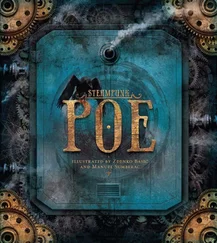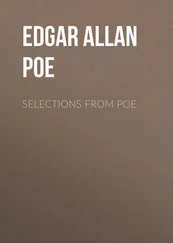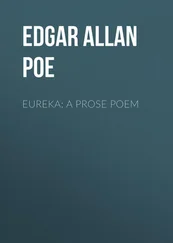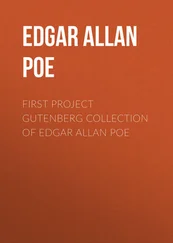Edgar Poe - Four Beasts in One
Здесь есть возможность читать онлайн «Edgar Poe - Four Beasts in One» весь текст электронной книги совершенно бесплатно (целиком полную версию без сокращений). В некоторых случаях можно слушать аудио, скачать через торрент в формате fb2 и присутствует краткое содержание. Жанр: Классическая проза, на английском языке. Описание произведения, (предисловие) а так же отзывы посетителей доступны на портале библиотеки ЛибКат.
- Название:Four Beasts in One
- Автор:
- Жанр:
- Год:неизвестен
- ISBN:нет данных
- Рейтинг книги:4 / 5. Голосов: 1
-
Избранное:Добавить в избранное
- Отзывы:
-
Ваша оценка:
- 80
- 1
- 2
- 3
- 4
- 5
Four Beasts in One: краткое содержание, описание и аннотация
Предлагаем к чтению аннотацию, описание, краткое содержание или предисловие (зависит от того, что написал сам автор книги «Four Beasts in One»). Если вы не нашли необходимую информацию о книге — напишите в комментариях, мы постараемся отыскать её.
Four Beasts in One — читать онлайн бесплатно полную книгу (весь текст) целиком
Ниже представлен текст книги, разбитый по страницам. Система сохранения места последней прочитанной страницы, позволяет с удобством читать онлайн бесплатно книгу «Four Beasts in One», без необходимости каждый раз заново искать на чём Вы остановились. Поставьте закладку, и сможете в любой момент перейти на страницу, на которой закончили чтение.
Интервал:
Закладка:
"Bless me! it is an ape!"
True—a baboon; but by no means the less a deity. His name is a derivation of the Greek Simia—what great fools are antiquarians! But see!—see!—yonder scampers a ragged little urchin. Where is he going? What is he bawling about? What does he say? Oh! he says the king is coming in triumph; that he is dressed in state; that he has just finished putting to death, with his own hand, a thousand chained Israelitish prisoners! For this exploit the ragamuffin is lauding him to the skies. Hark! here comes a troop of a similar description. They have made a Latin hymn upon the valor of the king, and are singing it as they go:
Mille, mille, mille,
Mille, mille, mille,
Decollavimus, unus homo!
Mille, mille, mille, mille, decollavimus!
Mille, mille, mille,
Vivat qui mille mille occidit!
Tantum vini habet nemo
Quantum sanguinis effudit! [1] Flavius Vospicus says, that the hymn here introduced was sung by the rabble upon the occasion of Aurelian, in the Sarmatic war, having slain, with his own hand, nine hundred and fifty of the enemy.
Which may be thus paraphrased:
A thousand, a thousand, a thousand,
A thousand, a thousand, a thousand,
We, with one warrior, have slain!
A thousand, a thousand, a thousand, a thousand.
Sing a thousand over again!
Soho !—let us sing
Long life to our king,
Who knocked over a thousand so fine!
Soho!—let us roar,
He has given us more
Red gallons of gore
Than all Syria can furnish of wine!
"Do you hear that flourish of trumpets?"
Yes: the king is coming! See! the people are aghast with admiration, and lift up their eyes to the heavens in reverence. He comes;—he is coming;—there he is!
"Who?—where?—the king?—do not behold him—cannot say that I perceive him."
Then you must be blind.
"Very possible. Still I see nothing but a tumultuous mob of idiots and madmen, who are busy in prostrating themselves before a gigantic cameleopard, and endeavoring to obtain a kiss of the animal's hoofs. See! the beast has very justly kicked one of the rabble over—and another—and another—and another. Indeed, I cannot help admiring the animal for the excellent use he is making of his feet."
Rabble, indeed!—why these are the noble and free citizens of Epidaphne! Beasts, did you say?—take care that you are not overheard. Do you not perceive that the animal has the visage of a man? Why, my dear sir, that cameleopard is no other than Antiochus Epiphanes, Antiochus the Illustrious, King of Syria, and the most potent of all the autocrats of the East! It is true, that he is entitled, at times, Antiochus Epimanes—Antiochus the madman—but that is because all people have not the capacity to appreciate his merits. It is also certain that he is at present ensconced in the hide of a beast, and is doing his best to play the part of a cameleopard; but this is done for the better sustaining his dignity as king. Besides, the monarch is of gigantic stature, and the dress is therefore neither unbecoming nor over large. We may, however, presume he would not have adopted it but for some occasion of especial state. Such, you will allow, is the massacre of a thousand Jews. With how superior a dignity the monarch perambulates on all fours! His tail, you perceive, is held aloft by his two principal concubines, Elline and Argelais; and his whole appearance would be infinitely prepossessing, were it not for the protuberance of his eyes, which will certainly start out of his head, and the queer color of his face, which has become nondescript from the quantity of wine he has swallowed. Let us follow him to the hippodrome, whither he is proceeding, and listen to the song of triumph which he is commencing:
Who is king but Epiphanes?
Say—do you know?
Who is king but Epiphanes?
Bravo!—bravo!
There is none but Epiphanes,
No—there is none:
So tear down the temples,
And put out the sun!
Well and strenuously sung! The populace are hailing him 'Prince of Poets,' as well as 'Glory of the East,' 'Delight of the Universe,' and 'Most Remarkable of Cameleopards.' They have encored his effusion, and do you hear?—he is singing it over again. When he arrives at the hippodrome, he will be crowned with the poetic wreath, in anticipation of his victory at the approaching Olympics.
"But, good Jupiter! what is the matter in the crowd behind us?"
Behind us, did you say?—oh! ah!—I perceive. My friend, it is well that you spoke in time. Let us get into a place of safety as soon as possible. Here!—let us conceal ourselves in the arch of this aqueduct, and I will inform you presently of the origin of the commotion. It has turned out as I have been anticipating. The singular appearance of the cameleopard and the head of a man, has, it seems, given offence to the notions of propriety entertained, in general, by the wild animals domesticated in the city. A mutiny has been the result; and, as is usual upon such occasions, all human efforts will be of no avail in quelling the mob. Several of the Syrians have already been devoured; but the general voice of the four-footed patriots seems to be for eating up the cameleopard. 'The Prince of Poets,' therefore, is upon his hinder legs, running for his life. His courtiers have left him in the lurch, and his concubines have followed so excellent an example. 'Delight of the Universe,' thou art in a sad predicament! 'Glory of the East,' thou art in danger of mastication! Therefore never regard so piteously thy tail; it will undoubtedly be draggled in the mud, and for this there is no help. Look not behind thee, then, at its unavoidable degradation; but take courage, ply thy legs with vigor, and scud for the hippodrome! Remember that thou art Antiochus Epiphanes. Antiochus the Illustrious!—also 'Prince of Poets,' 'Glory of the East,' 'Delight of the Universe,' and 'Most Remarkable of Cameleopards!' Heavens! what a power of speed thou art displaying! What a capacity for leg-bail thou art developing! Run, Prince!—Bravo, Epiphanes! Well done, Cameleopard!—Glorious Antiochus!—He runs!—he leaps!—he flies! Like an arrow from a catapult he approaches the hippodrome! He leaps!—he shrieks!—he is there! This is well; for hadst thou, 'Glory of the East,' been half a second longer in reaching the gates of the Amphitheatre, there is not a bear's cub in Epidaphne that would not have had a nibble at thy carcase. Let us be off—let us take our departure!—for we shall find our delicate modern ears unable to endure the vast uproar which is about to commence in celebration of the king's escape! Listen! it has already commenced. See!—the whole town is topsy-turvy.
"Surely this is the most populous city of the East! What a wilderness of people! what a jumble of all ranks and ages! what a multiplicity of sects and nations! what a variety of costumes! what a Babel of languages! what a screaming of beasts! what a tinkling of instruments! what a parcel of philosophers!"
Come let us be off.
"Stay a moment! I see a vast hubbub in the hippodrome; what is the meaning of it, I beseech you?"
That?—oh, nothing! The noble and free citizens of Epidaphne being, as they declare, well satisfied of the faith, valor, wisdom, and divinity of their king, and having, moreover, been eye-witnesses of his late superhuman agility, do think it no more than their duty to invest his brows (in addition to the poetic crown) with the wreath of victory in the footrace—a wreath which it is evident he must obtain at the celebration of the next Olympiad, and which, therefore, they now give him in advance.
1
Flavius Vospicus says, that the hymn here introduced was sung by the rabble upon the occasion of Aurelian, in the Sarmatic war, having slain, with his own hand, nine hundred and fifty of the enemy.
Интервал:
Закладка:
Похожие книги на «Four Beasts in One»
Представляем Вашему вниманию похожие книги на «Four Beasts in One» списком для выбора. Мы отобрали схожую по названию и смыслу литературу в надежде предоставить читателям больше вариантов отыскать новые, интересные, ещё непрочитанные произведения.
Обсуждение, отзывы о книге «Four Beasts in One» и просто собственные мнения читателей. Оставьте ваши комментарии, напишите, что Вы думаете о произведении, его смысле или главных героях. Укажите что конкретно понравилось, а что нет, и почему Вы так считаете.







